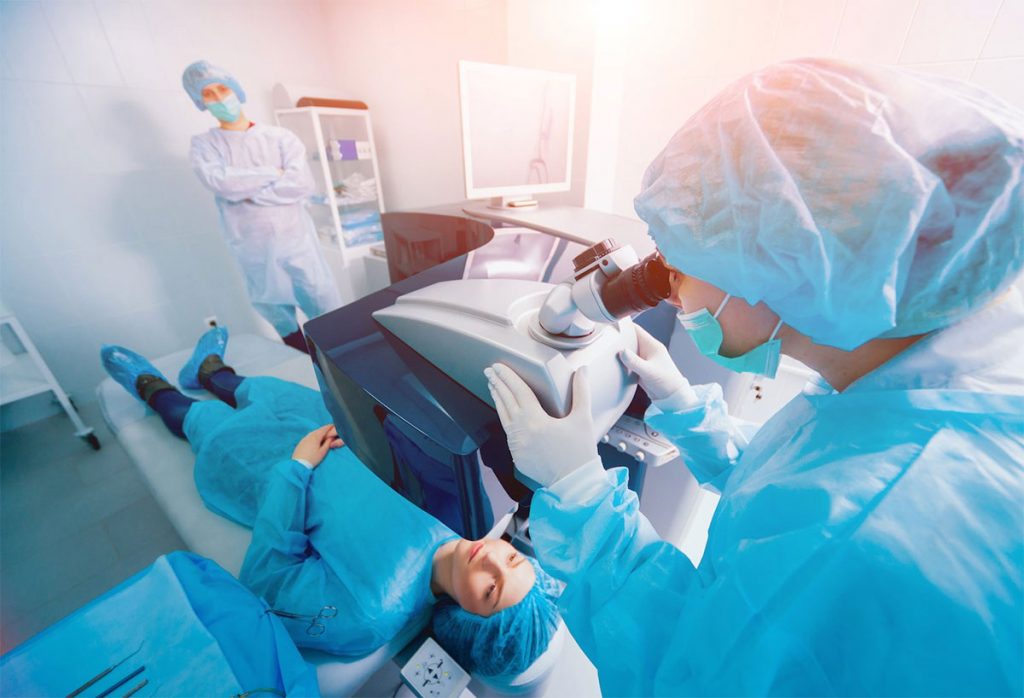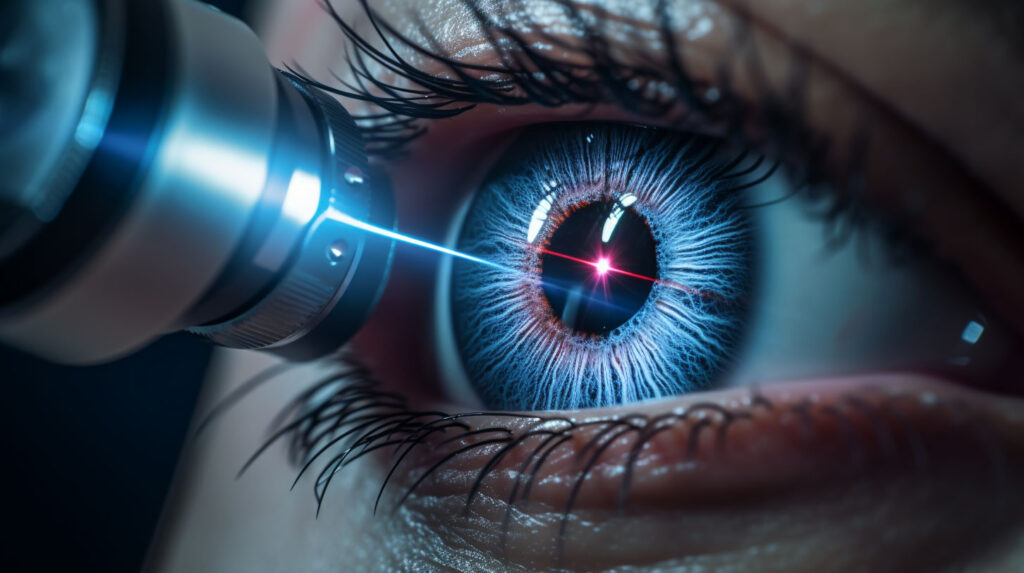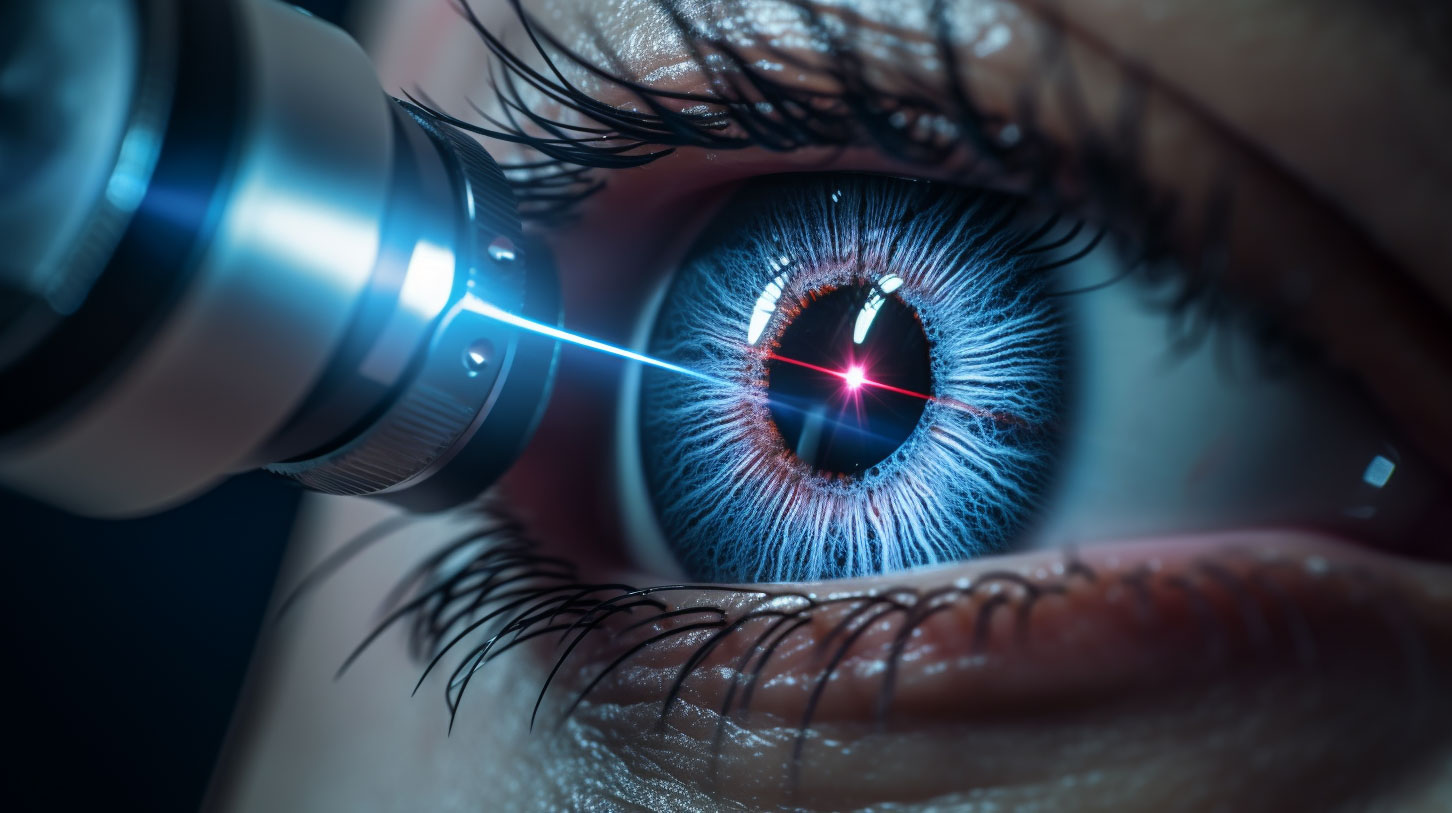In today’s technology-driven world, achieving perfect vision has become easier than ever before. One such advancement in medical science that has revolutionized the field of eye care is laser eye surgery. This procedure offers a safe and effective way to correct various vision problems, providing individuals with the opportunity to finally free themselves from the burden of glasses or contact lenses. By harnessing the power of advanced laser technology, laser eye surgery offers a long-lasting solution to achieving perfect vision.
Understanding the Basics of Laser Eye Surgery
What is Laser Eye Surgery?
Laser eye surgery, also known as refractive surgery, is a procedure designed to correct common vision problems such as nearsightedness, farsightedness, and astigmatism. It works by reshaping the cornea, the clear front part of the eye, to improve the eye’s focusing power. The goal is to allow light entering the eye to properly focus on the retina, resulting in clear and sharp vision.
One of the most popular types of laser eye surgery is LASIK (Laser-Assisted In Situ Keratomileusis), where a thin flap is created on the cornea using a femtosecond laser. Another common procedure is PRK (Photorefractive Keratectomy), which involves removing the outer layer of the cornea before reshaping it with an excimer laser. Both procedures aim to correct refractive errors and reduce or eliminate the need for glasses or contact lenses.
The Science Behind the Technology
The basis of laser eye surgery lies in the utilization of a specialized laser that removes microscopic layers of tissue from the cornea. The specific technique used depends on the type of laser eye surgery being performed, but they all share a common principle – reshaping the cornea to correct vision imperfections.
Advanced wavefront technology is often incorporated into laser eye surgery procedures to create a personalized treatment plan for each patient. This technology maps the unique characteristics of the patient’s eye, allowing for a more precise and customized correction of their vision. By tailoring the treatment to the individual’s eye anatomy, surgeons can achieve optimal outcomes and enhance the quality of vision post-surgery.
The Different Types of Laser Eye Surgery
LASIK: The Most Common Procedure
LASIK, short for Laser-Assisted in Situ Keratomileusis, is the most commonly performed and well-known laser eye surgery procedure. It involves creating a thin flap on the cornea using either a microkeratome or a femtosecond laser. Once the corneal flap is created, the underlying tissue is reshaped using an excimer laser. The corneal flap is then folded back into place, where it adheres without the need for sutures. Click here to learn about why laser eye surgery Sydney is a top choice for vision correction.
One of the key advantages of LASIK is its rapid recovery time, with most patients experiencing improved vision almost immediately after the procedure. The majority of patients achieve 20/20 vision or better following LASIK surgery, making it a popular choice for those looking to reduce their dependence on glasses or contact lenses.
PRK: An Alternative to LASIK
PRK, or Photorefractive Keratectomy, is another type of laser eye surgery that can be used to correct vision problems. It is similar to LASIK in terms of the intended outcome, but the surgical technique and recovery process differ. With PRK, the top layer of the cornea is completely removed, rather than creating a corneal flap. This allows for direct reshaping of the corneal tissue. The absence of a corneal flap in PRK makes it a suitable option for individuals with thin corneas or other corneal issues.
Although the recovery period for PRK is typically longer than that of LASIK, some patients may prefer this option due to its lower risk of certain complications, such as flap-related issues. PRK is also a better choice for individuals involved in contact sports or professions with a higher risk of eye trauma, as the cornea remains structurally intact post-surgery.
The Benefits of Laser Eye Surgery
Improved Vision Quality
One of the primary benefits of laser eye surgery is the significant improvement in vision quality that patients experience. By correcting vision problems, individuals can achieve 20/20 vision or even better in some cases. This means no more reliance on glasses or contact lenses for clear vision, leading to greater convenience and freedom in daily life.

Furthermore, laser eye surgery can enhance not only visual acuity but also peripheral vision and depth perception. This comprehensive improvement in vision quality can be particularly beneficial for individuals who lead active lifestyles or participate in sports that require keen eyesight and quick reflexes.
Long-Term Cost Benefits
Although laser eye surgery may require an initial investment, it often proves to be a cost-effective solution in the long run. When considering the expenses associated with purchasing and maintaining glasses or contact lenses over several years, laser eye surgery can actually save individuals money in the long term. It eliminates the need for regular eye exams, prescription updates, and the purchasing of new frames or lenses.
Moreover, the long-term cost benefits of laser eye surgery extend beyond financial savings. By freeing individuals from the ongoing expenses of corrective eyewear, they can enjoy a sense of independence and self-reliance in managing their vision health. This newfound freedom from the constraints of glasses or contact lenses can lead to improved confidence and quality of life.
The Risks and Complications of Laser Eye Surgery
Potential Side Effects
As with any surgical procedure, laser eye surgery carries potential risks and side effects. Some individuals may experience dry eyes, glare, halos, or even fluctuating vision in the initial stages of the recovery. These side effects are usually temporary and tend to disappear as the eyes heal. However, it’s crucial to discuss any concerns with the eye surgeon beforehand to ensure realistic expectations and to maximize the chances of a successful outcome.
It is important to note that while these side effects are common during the recovery period, the vast majority of patients find that their vision significantly improves in the weeks following the surgery. Dry eyes, for example, can be managed with prescribed eye drops, and glare and halos tend to diminish as the eyes adjust to their new shape. Understanding the temporary nature of these side effects can help patients remain patient and positive during their recovery.
Understanding the Risks
While laser eye surgery has an excellent success rate, there is a small risk of complications. These can include infection, corneal scarring, under or over-correction, or even a loss of vision. However, it is essential to note that such complications are rare, and the likelihood of experiencing them is significantly lower when the procedure is performed by a skilled and experienced eye surgeon.
Patients can further reduce the risks associated with laser eye surgery by following post-operative care instructions diligently. This typically includes attending follow-up appointments, using prescribed eye drops as directed, avoiding rubbing the eyes, and protecting the eyes from irritants such as dust and wind. By adhering to these guidelines, patients can promote proper healing and minimize the chances of complications arising post-surgery.

Preparing for Laser Eye Surgery
What to Expect During the Consultation
Before undergoing laser eye surgery, a thorough consultation with the eye surgeon is necessary. During this consultation, a comprehensive eye examination will be conducted to determine the suitability for the procedure. The surgeon will assess factors such as corneal thickness, eye health, prescription stability, and overall medical history. Any concerns or questions the patient may have will also be addressed during this consultation, ensuring a clear understanding of the procedure and its expected outcome.
It is important to note that the consultation is not only an opportunity for the surgeon to evaluate the patient’s eligibility for the surgery, but also for the patient to assess the surgeon’s expertise and experience. Patients can inquire about the surgeon’s success rate, the number of procedures they have performed, and any potential complications that may arise. This open and transparent communication between the patient and surgeon is crucial in building trust and confidence before the surgery.
How to Prepare for the Procedure
Prior to the surgery, the eye surgeon will provide detailed instructions on how to prepare. This may include discontinuing the use of contact lenses a few weeks before the procedure, and specific pre-surgery medications that need to be taken. It’s crucial to follow these instructions carefully to optimize the chances of a successful surgery and smooth recovery.
In addition to following the surgeon’s instructions, it is also important for patients to mentally and emotionally prepare for the procedure. Laser eye surgery can be a life-changing experience, but it is normal to feel some anxiety or nervousness before the surgery. Taking time to relax, practicing deep breathing exercises, and seeking support from friends and family can help alleviate any pre-surgery jitters.
Furthermore, patients should ensure they have a reliable support system in place for the post-surgery recovery period. This may involve arranging for someone to drive them home after the procedure and having someone available to assist with daily activities for the first few days. By having a strong support network, patients can focus on their recovery and allow their eyes to heal properly.
In conclusion, laser eye surgery offers a life-changing opportunity for individuals to achieve perfect vision. By understanding the basics of the procedure, the different types available, the benefits it provides, and the associated risks, individuals can make an informed decision about whether laser eye surgery is the right choice for them. With advanced technology and skilled surgeons, laser eye surgery can pave the way for a future filled with clear, crisp vision, and a life free from the constraints of glasses or contact lenses.



